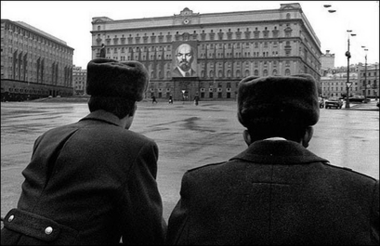Russia: No extraditions in spy death
(AP)Updated: 2006-12-06 15:48
MOSCOW - The chief prosecutor said Tuesday Russia would not allow the extradition of possible suspects in the poisoning of a former KGB agent in Britain and he dismissed as "nonsense" allegations by another ex-security officer of a death squad for Kremlin critics.
Chaika said Russian prosecutors would fully cooperate with Scotland Yard, which has sent a team of British investigators to Moscow.
He said all the figures in the case whom the British investigators had requested to see are being interrogated by Russian prosecutors in presence of the British officers. "It is we are who are doing all the interrogating. They only attend that, it cannot be otherwise on the territory of our state," Chaika said.
Chaika's comments came a day after Foreign Minister Sergey Lavrov warned that continued suggestions of Kremlin involvement in Litvinenko's death could damage relations with Britain.
In televised comments, Lavrov said he had spoken with British Foreign Secretary Margaret Beckett "about the necessity to avoid any kind of politicization of this question, this tragedy ¡ª the death of person is always a tragedy - and the necessity to avoid speculation on this subject."
Chaika confirmed that Andrei Lugovoi, the ex-agent who met with Litvinenko Nov. 1, had been hospitalized and said the British officers could talk to him with doctors' permission. "Everything will depend on the doctors' opinion," he said.
Chaika also insisted that there would be no extradition of any Russian suspects in the poisoning, saying "they are citizens of Russia and the Russian constitution makes that impossible."
Turning to another figure in the Litvinenko case, former security officer Mikhail Trepashkin, who is now serving a four-year prison sentence after being convicted of divulging state secrets, Chaika said the British investigators would not be allowed to visit him.
Trepashkin has claimed in a letter from prison that he had warned Litvinenko several years ago about a government-sponsored death squad that intended to kill him and other Kremlin opponents.
Chaika dismissed Trepashkin's allegations as "nonsense," but said added that if substantial facts are collected to support Trepashkin's evidence, Russian prosecutors could consider allowing British police to interview him.
The case has further strained already tense relations between Russia and Britain, which has infuriated the Kremlin by giving asylum to tycoon and fierce Kremlin critic Boris Berezovsky and Chechen rebel envoy Akhmed Zakayev in addition to Litvinenko, a former Federal Security Service officer turned Kremlin critic.
|
||
|
||
|
|


